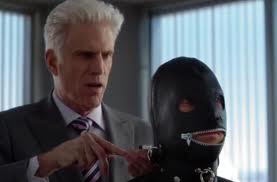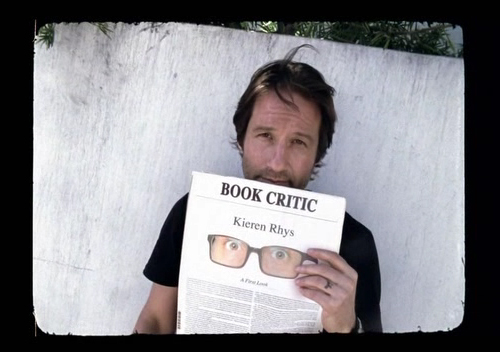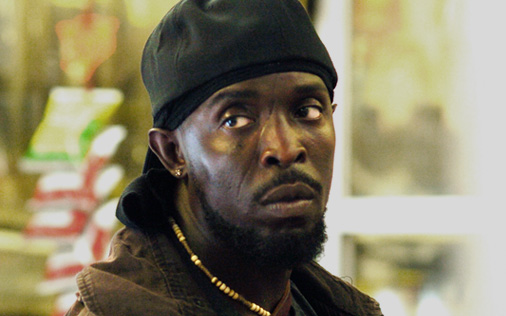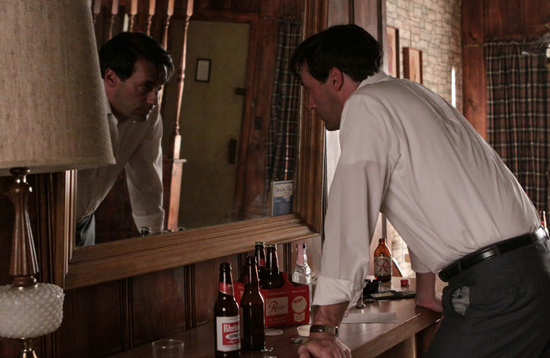
From sideshow performers to masked superheroes, "the man with two faces" is no stranger to American pop culture. He's dangerous, inaccessible, vulnerable, sexy, secretive, and these days, dominating cable TV's leading men.
What's the appeal of "the man with two faces"? And why so suddenly has he become a mainstay in the shows we love to watch?
"Jonathan Ames" played by Jason Schwartzman on Bored to Death is a kooky writer, suffering a sophomore slump when his publisher drops him. Making matters worse, his girlfriend also dumped him and he spends too much time with an aging lothario/ publishing magnate, cynical cartoonist, a bottle of cheap white and bag of expensive pot. Until... he places an ad on Craigslist as an amateur private eye. Over the course of two seasons, we've seen Jonathan live two lives: that of the neurotic, self-deprecating, pothead-Brooklyite-intellectual (you can flash me those puppy dog eyes any time, Jason Schwartzman) and that of a thrill-seeking sleuth, a private dick, who (by the end of Season 2) can be kind of slick.

"Hank Moody" played by David Duchovny on Californication is another writer who wrestles with the blank page, and like Schwartzman's Jonathan, lives his adult life as a somewhat of a stunted adolescent. Hank's had many successes, a hit novel and film adaptation, as well as a family with long time girlfriend and mother of his child, Becca, who actually is a teenager. Yet Hank seems to sabotage each success because he can't quit booze, drugs, and women. Each is a habit that compels him so absolutely, (why? He never reveals that to viewers, though we are treated to a slew of excuses) belying any semblance of stability, maturity, or completeness required of an accomplished professional, devoted partner, and father. We see him struggle about living this double live -- that's the emotional push-pull of the show. When his teenage daughter, (in Season 3 being raised by Hank in California while her mother takes a job in New York) tells him she lives in a "bordello," all he can do is nod, agree, and apologize.

"Omar Little" played by Michael Kenneth Williams on The Wire needs no introduction. Kids in the street yell, "Omar's coming!" and everyone scatters. In an ensemble cast of knockout performances, Omar's the fan favorite. While McNulty broods over living a split existence: family man/womanizer; good cop/bad cop, Omar is at peace with the contradictions that define him; they make up his code. "I ain't never put my gun on nobody that wasn't in the game," he says with conviction. He'll steal from and brutally execute his enemies, but won't use profanity and takes his grandmother to church on Sunday. He's the hood playa in every way: counts stacks, carries a shotgun, and wears a Matrix leather pimp duster. He's also openly gay, monogamously loving his partners and expecting loyalty in return. Williams, an OG Brooklyn performer, says about Omar's double life, "It is what it is, and he is fine with his bottom line." He doesn't play into any stereotype, gay or gangsta. But who can miss that chin-to-brow scar, splitting his face in two.

"Don Draper" played by John Hamm on Mad Men leads the ultimate double life. While not a superhero, Don Draper is everyman's Casanova, talking men and women alike into believing every idea that falls from his lips. There's just one catch: Don Draper, ad exec, family man, lover-of-the-ladies is the complete creation of Dick Whitman, son of a Midwestern prostitute who assumes the identity of a fallen soldier. Just as in Californication, the emotional allure of Mad Men lies in its leading man trying to negotiate his double life. At the end of Season 4, when Don's latest lover, Dr. Faye, learns Don's true identity, she urges him to fess up so he can "live life like the rest of us." This sends Don into a panic so unnerving he thinks he's having a heart attack; this is not the Don Draper we've known for four seasons -- the guy who tosses back bourbon, lights up and handles it -- whatever it may be. Like the viewers who watch his drama unfold, Don too is captivated by the appeal of "two faces" and cannot imagine living an integrated life.

It's naïve to think that we all can't be too faced at times. But these leading men build their entire identities around self-imposed contradictions. Character contradictions are compelling -- they suggest grit, depth, and mystery. And us viewers can't get enough.
